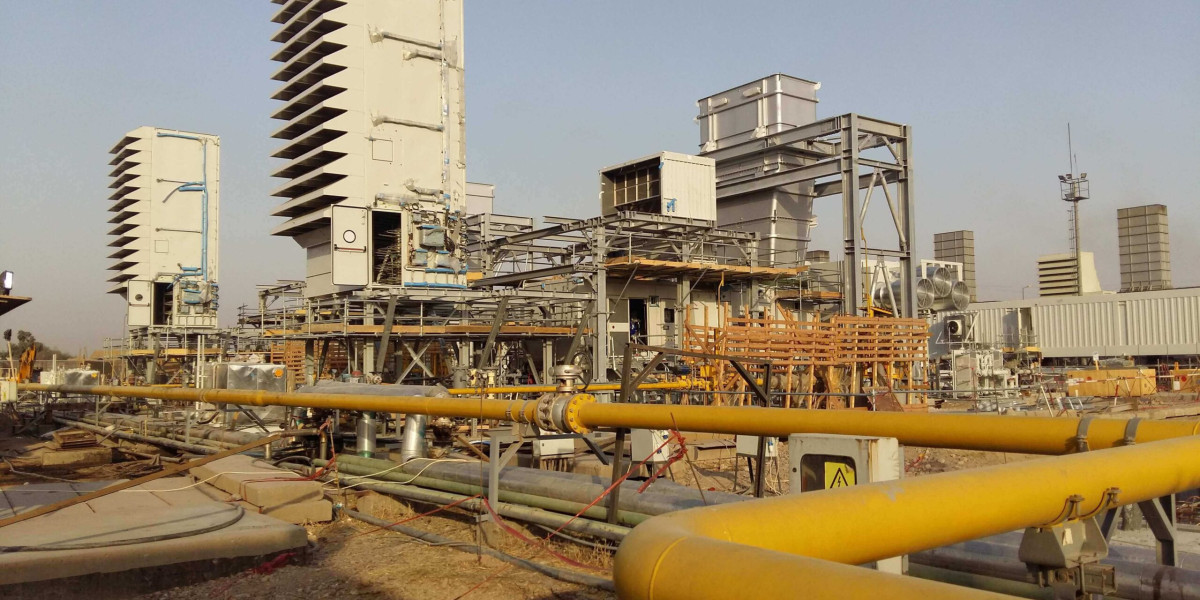In the past two decades, EPC projects in Iraq have played a central role in rebuilding the country’s infrastructure and supporting its economic recovery. Engineering, procurement, and construction (EPC) is a comprehensive approach to project delivery that integrates the three primary phases into a single contract.
In Iraq, where stability and timely execution are paramount, the EPC model offers a reliable and efficient solution for large-scale industrial and infrastructure developments. From energy to water treatment, transportation, and commercial construction, EPC projects are increasingly shaping Iraq's developmental landscape.
The EPC Model Explained
EPC is a turnkey solution where a contractor is responsible for all aspects of a project—from detailed engineering and procurement of materials to final construction and commissioning. This model reduces the complexity for project owners, as it offers a single point of accountability. Additionally, it guarantees that the finished product will be delivered on schedule, under budget, and in compliance with all requirements.
In a country like Iraq, which is undergoing a massive reconstruction phase while dealing with regulatory challenges and logistical constraints, EPC contracts have become essential. By outsourcing project execution to experienced EPC firms, both government and private investors can minimize risks and achieve better project outcomes.
Growth of EPC Projects in Iraq
The reconstruction needs in Iraq are vast. Years of conflict, combined with underinvestment, have left the country with outdated infrastructure and inadequate service delivery systems. In response, the government and foreign stakeholders have initiated numerous EPC projects in Iraq to rebuild the energy grid, modernize water systems, and expand industrial capabilities.
Energy sector projects dominate the EPC landscape. Iraq is one of the largest oil-producing countries in the world, yet its domestic energy infrastructure has often struggled to meet demand. EPC contractors are being deployed to build new oil refineries, expand pipeline networks, construct power generation stations, and modernize electrical grids. Beyond oil and gas, water treatment facilities, transportation infrastructure, and public buildings are also being developed under EPC contracts. This surge in projects is transforming urban centers like Baghdad, Basra, and Erbil, improving quality of life and opening up new economic opportunities.
Key Advantages of EPC in the Iraqi Context
EPC contracts offer several benefits that are particularly valuable in the Iraqi environment:
- Efficiency and Speed: EPC projects typically follow tighter timelines because the same entity manages all aspects of the project, leading to quicker coordination and execution.
- Cost Control: A single, agreed-upon price for the entire project helps avoid cost overruns, which is essential in environments with tight public budgets or foreign investment scrutiny.
- Risk Mitigation: The responsibility for performance, deadlines, and quality rests with the EPC contractor, reducing the financial and operational risk for the client.
- Quality and Compliance: Reputable EPC firms implement rigorous quality control measures and adhere to international standards, ensuring reliable and long-lasting results.
- Simplified Management: With one contractor overseeing all phases, project owners can focus on strategic oversight rather than daily management issues.
Sectors Benefiting from EPC Projects
EPC projects in Iraq are transforming multiple sectors:
- Energy & Power: From natural gas power plants to solar projects, EPC contracts are helping Iraq close its power deficit and reduce reliance on imported electricity.
- Oil & Gas: Refineries, storage facilities, and pipeline networks are being built or modernized through EPC agreements, boosting Iraq’s export capabilities and refining efficiency.
- Water Infrastructure: EPC firms are constructing desalination plants, wastewater treatment units, and modern distribution systems to address water scarcity and improve public health.
- Transportation: Roads, bridges, and airports are being rebuilt or expanded to support mobility and trade. These developments are often managed under EPC models for speed and quality assurance.
- Industrial Development: New cement plants, logistics centers, and industrial parks are taking shape, positioning Iraq for a more diversified economy.
Challenges and Considerations
While the EPC model offers clear advantages, executing such projects in Iraq comes with unique challenges. These include regulatory uncertainty, land acquisition issues, security concerns, and occasional supply chain disruptions. On the other hand, skilled EPC contractors know how to overcome these challenges. Strong local partnerships, proactive risk management, and digital project monitoring tools have become standard practices among top-performing EPC firms. Among the reputable players in this space is MUE Group, a company known for delivering high-quality engineering, procurement, and construction services across Iraq. With a focus on both public and private sector projects, MUE Group has successfully contributed to the country's rebuilding efforts and continues to be a trusted name in the EPC landscape.
Conclusion
As Iraq continues its journey toward stability and modernization, EPC projects in Iraq will remain central to its development strategy. The ability to deliver fully functional facilities on time and within budget makes the EPC model ideal for a country looking to rebuild quickly and efficiently. With increasing foreign investment and government commitment to infrastructure development, EPC contracts are set to drive Iraq’s economic revival in the years ahead.






